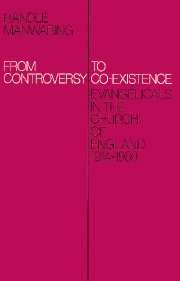Book contents
- Frontmatter
- Contents
- Acknowledgements
- Preface
- 1 Into battle
- 2 The defensive years
- 3 Through the Waste Land
- 4 Continuing nadir
- 5 The turning tide
- 6 Towards the conversion of many
- 7 Flood-tide of Evangelism
- 8 Anatomy of Evangelicalism
- 9 The Fundamentalist issue
- 10 The hard facts of Evangelicals and unity
- 11 The Honest to God debate
- 12 Liturgical debates
- 13 Charismatic differences
- 14 Keele – a watershed
- 15 Evangelical identity – a problem
- Notes
- Index
5 - The turning tide
Published online by Cambridge University Press: 18 September 2009
- Frontmatter
- Contents
- Acknowledgements
- Preface
- 1 Into battle
- 2 The defensive years
- 3 Through the Waste Land
- 4 Continuing nadir
- 5 The turning tide
- 6 Towards the conversion of many
- 7 Flood-tide of Evangelism
- 8 Anatomy of Evangelicalism
- 9 The Fundamentalist issue
- 10 The hard facts of Evangelicals and unity
- 11 The Honest to God debate
- 12 Liturgical debates
- 13 Charismatic differences
- 14 Keele – a watershed
- 15 Evangelical identity – a problem
- Notes
- Index
Summary
Two specifically evangelical youth movements rose to positions of remarkable influence in the thirties, viz. the Children's Special Service Mission and the Crusaders Union. Both were seen at their most influential in the work of their summer (and to a lesser extent Easter) camps which were used to evangelise and then build up in the faith thousands of boys and girls from lower and upper middle-class families. These societies were non-denominational in character but inevitably they worked more in the direction of the Anglican Church than elsewhere and far-reaching results were eventually to be seen in men being ordained who owed their conversion to the camp work of C.S.S.M. and Crusaders. Most of the leaders in these organisations were ambivalent regarding their churchmanship, for they saw their work among the young as freeing them from too much involvement with their own Churches and yet they saw themselves always as part of ‘the handmaid of the Church’ and working towards the goal of active Church membership for their converts. Perhaps they would have fretted in a wholly denominational environment but being Evangelicals and always feeling at home in a truly ecumenical setting founded on the gospel, they were able to work most happily with these movements outside their own religious milieu and to bring back, to the Anglican Church in particular, a not inconsiderable ‘harvest home’.
- Type
- Chapter
- Information
- From Controversy to Co-ExistenceEvangelicals in the Church of England 1914–1980, pp. 57 - 72Publisher: Cambridge University PressPrint publication year: 1985



